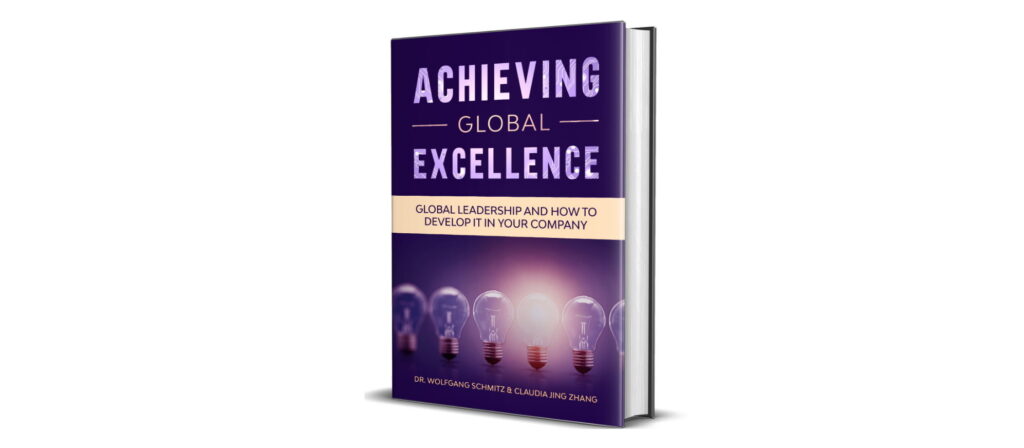Multinational organizations ordinarily make a choice to champion one of two main approaches to conducting their operations. A global strategy that creates homogeneity across business outlets is one option. The other approach segments the organization and gives each branch the autonomy to act according to their individual context, with little input from a central HQ.
But what happens when an organization wants the best of both? Is it really possible to have an organizational culture that is both global and local?
Vodafone CEO Vittorio Colao believes this to be something that is within reach for global organizations. Read on to find out more about how he managed to achieve this and how this model fares when problems arise — problems like millions of dollars found missing in accounting…
Vodafone: A Global Telecommunications Story
Started in 1991 in the UK, Vodafone grew to become one of the leading providers of voice, data, and phone services across Africa, Asia, Europe, and Oceania. Headquartered in London, Vodafone operates in 25 countries, with an additional 47 partnerships giving them some of the most extensive coverage in the world.
About a decade ago, Vodafone always appeared to have a common identity worldwide. In reality, regional branches operated in silo. Nevertheless, there was an expectation that as a global company, there should be a level of standardization across business operations. Recognizing a need to change in this area, Vodafone moved to get a global leader that would drive this agenda forward.

“Nobody is Global”: Vittorio Colao
In 2008, Vittorio Colao took over as CEO of Vodafone. His mission was to bring cohesion to a very fragmented business model. While there was some collaboration that existed between the European branches of Vodafone, it was limited. Across continents, there was little to no collaboration at all.
Colao however, was aware that the customer is king. In order to retain their place in the market or expand further, Vodafone needed to remain a company that was able to adapt to the needs of their local customers. The needs of customers in Tanzania would differ, sometimes massively, from the needs of customers in Ireland. Expectations would be different based on socio-economic factors. Clearly, a ‘one size fits all’ approach would not solve the issue. The company was global, but customers are not.
Having said that, in order for Vodafone to capitalize on the power of a strong brand, there needed to be something that united all business operations under a single banner and behind a common purpose.
Colao’s answer to this?
“The Vodafone Way”: The Global-Local Tension
The Vodafone Way described Colao’s vision of a company that would have “international values and local roots”. With this ethos to underpin all the branches across the world, Vodafone hoped to instill a code of conduct that would govern the strategies of Vodafone CEO’s while giving them the autonomy and the flexibility to respond to local market needs appropriately.
The overall vision and values would come from central headquarters, but the interpretation and implementation of the vision were flexible, providing regional CEOs could justify their strategy.
As an approach, “International Values and Local Roots” faced some criticism. Described as a “strange beast”, Colao’s philosophy of maintaining a “global-local” tension left a grey area that not all people were comfortable with.
For middle managers, for example, it was clear that they often had difficult choices to make; should they prioritize a global agenda or a local agenda? What would happen if the market shifted and central HQ was slow to respond? Was there ever such a thing as giving too much autonomy?
On the other hand, the regional CEOs loved the autonomy that allowed them to make high-level decisions and achieve success in their unique contexts. If they decided to challenge something from HQ, they knew that they would need to have a watertight business case in order to do that. Marketing campaigns, for instance, were localized to suit customer tastes, giving Vodafone an extra edge.
Colao himself believed in this philosophy wholeheartedly. It empowered local CEOs to deliver their best work and achieve incredible things. Maintaining that “global-local” tension, however, became a challenge when it came to disciplinary matters.
How is fairness achieved when there are so many different contexts to consider? One such situation put him to the test, and with a whole company watching, Colao had some difficult decisions to make.

Accounts Gone Wrong
It had been brought to Colao’s attention that two major accounting discrepancies had been discovered. In one of the cases, the audit committee had uncovered a €60 million gap in the books. After extensive investigation, it was discovered that this mistake had been caused because figures had not been checked manually earlier in the accounting process. The people involved weren’t in any way malicious in their intent.
It was an expensive mistake, but an honest one. Colao was aware that the audit committee expected the repercussions for the employees involved to be severe.
The second discrepancy was much more sinister. €7 million appeared to be missing but the amount itself was too little to be picked up by the audit committee. After a series of checks, it became evident that investments and costs had been misreported. Although it was common practice in the industry to delay the reporting of investments and costs for the future, there seemed to be no reason for the employees involved to do such a thing. It wasn’t a method that was widely practiced at Vodafone, so justification was needed in order to break protocol this way. None was forthcoming.
In addition to this, as investigations continued, it became increasingly clear that the employees were, in fact, benefitting from the missing money. There was definitely a hint of dishonesty in the air.
So what to do?
With the whole company watching, how would the “Vodafone Way” perform in delivering a just and fair response to these matters? Vodafone was now a €46.6 billion company, so clearly the strategy was working externally. But the question remained; how could Colao stay true to his belief in “International Values and Local Roots” while getting the company house in order and maintaining the culture of trust and integrity he had worked so hard to build?
The answer to that lies in Vodafone’s commitment to a core value system.
The Power of Values
Creating fairness within a dynamic of global-local tension, especially in matters of a disciplinary nature, can be a difficult thing to achieve for a global leader. What makes it possible is a strong set of values. You’ll have noticed that the ethos of “The Vodafone Way” is “International Values and Local Roots”. Essentially what that means is that Vodafone, as a global company, is committed to a single value system but delegates the autonomy of individual markets to interpret that value system in a way that makes sense in their unique context.
Why is this important?
A strong set of values is not about having catchy buzzwords that look great on marketing materials. They form the bedrock of every decision that gets made and every action that is taken as a result of those decisions.
Values become the lens through which leaders and employees see and monitor their own actions and the actions of others. If the “International Values” do what they are meant to and provide a guiding set of philosophical principles for leaders and employees to internalize, then in theory, “local roots” business strategies will fall within the boundaries of the Vodafone Way value system.
It’s risky, but it’s genius.
On the surface of things, local leaders are given autonomy in a system that looks like everyone can do as they please. In reality, a moral code helps leaders and employees work on strategy in a way that conforms to a culturally transcendent standard.
So let’s look at how the “International Values” might help Vittorio Colao deal with these two significant accounting errors.

Incompetence or Dishonesty?
Having ingrained values should help Colao gain some clarity around what the appropriate disciplinary action should be. Are accounting issues integrity-based or competency-based?
Dealing with Incompetence
Of course, Colao has much to consider here. The audit committee is there to look at major accounting discrepancies. Naturally, having gone through the laborious process of investigating this case, they might want to see a leader like Colao take drastic action in the form of dismissals or demoting those responsible.
But while the practical duties of the employees involved have not been discharged correctly, gaps in their knowledge can be filled. A look into why the proper checks weren’t carried out needs to take place, otherwise, there’s a large risk that the same issue could crop up again at a different time, with different employees. Perhaps the process was not clear and the managers did the best they could with the information they had.
If the issue is down to competency, or lack thereof, then readjusting bonuses seems like a fair response. That’s a natural result that can be expected for not delivering work to the highest standard. €60 million is a large sum of money but the employees involved are incompetent, not dishonest.
This softer approach seems counterintuitive, but it sends a vital message across the business that although mistakes are not rewarded, Vodafone as a company doesn’t just give up on their leaders and staff that embody the company values and have a track record of good character. The benevolence conveyed when a company chooses “a second chance” approach, is good for morale. It also stops fear creeping in, which totally kills innovation; this would be detrimental to the “International Values and Local Roots” strategy because people would be too afraid to try something new, for fear of it going wrong and them losing their jobs.
Yes, the audit committee would be expecting hellfire and brimstone, but global leaders have to have the bigger picture in mind.
Dealing with Dishonesty
The other case, on the face of it, looks significantly smaller. €7 million in comparison to the other can feel like a drop in the ocean. If Colao wants to take a softer approach with the employees who made a €60 million mistake, then surely these guys should just get let off as well?
Not so. The important thing to note here is that it looks as though dishonesty and personal gain are at the heart of the matter.
This is a problem.
It’s a problem because this accounting case is indicative of a dishonest mindset. It’s a direct assault on the company values of integrity and trust. Allowing people with that kind of mindset to continue in the organization would send a message that the company turns a blind eye to dishonesty and theft. It’s €7 million worth of accounting damage at the moment. But what it could become, is a company-wide, industry renowned scandal that would damage Vodafone’s credibility in the eyes of competitors and customers.
This might not be the case that achieves that level of infamy. But you can guarantee that somebody else would raise the dishonesty bar and go for even greater amounts of money; this type of behavior only escalates if not rooted out.
As a global leader, Colao is balancing the expectations set not only by the culture of Vodafone but by the cultures of the people that make up all Vodafone employees. Trust and integrity are universal values that transcend culture. Similarly, intentional theft is an action that is universally disapproved of.
With that said, there’s an argument to be had that the employees involved should be dismissed outright once foul play has been proved. This should be broadcast company-wide as a deterrent for similar situations in the future. As a global leader, you work hard to build an organizational culture that you are your team can be proud of. As such, you naturally become a guardian of that culture, doing what you can to defend its integrity. For that reason, it makes sense to weed out a mindset that is so contrary to everything the company believes in, even though the amount of money lost is significantly smaller.
By taking both approaches, Colao has the opportunity to solidify the culture while at the same time not rewarding incompetence. He also retains the respect of his team because action has been taken to sort out the problems.
What would you do in Vittorio Colao’s situation? Is the above approach too harsh or not harsh enough? As a global leader or an aspiring global leader, would you have what it takes to solve this issue?
For more case studies like this, feel free to have a look through our other articles to see how global leaders are managing challenging, real-life environments. To read the full case study — it’s worth it — visit the store of Harvard Business Review. For more information on getting the skills and the mentoring you need to become the most effective global leader, please don’t hesitate to get in touch. Lastly, make sure you don’t miss out on our next articles by signing up for our newsletter:


